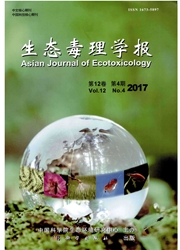

 中文摘要:
中文摘要:
系统毒理学是近5年来发展起来的一门新兴学科,代表着后基因组时代毒理学发展的新方向.所谓系统毒理学是指通过了解机体暴露后在不同剂量、不同时点的基因表达谱、蛋白质谱和代谢物谱的改变以及传统毒理学的研究参数,借助生物信息学和计算毒理学技术对其进行整合,从而系统地研究外源性化学物和环境应激等与机体相互作用的一门学科.系统毒理学有望在阐明毒物对机体损伤分子机制、分子生物标志物和危险度评价等方面取得突破.在总结国内外相关研究的基础上,综述了系统毒理学的诞生背景、研究策略、研究技术及其主要应用.尽管还有不足之处,但可以肯定系统毒理学的发展和应用将会对人类的环境与健康研究产生极大的推动作用.
 英文摘要:
英文摘要:
The up-date understanding of systems toxicology is to study the perturbation of biological systems by chemicals and stressors through monitoring the differentiations of molecular expression and conventional toxicological parameters, and then itemtively integrating various response data. The current systems toxicology combines transcript profiling, protein profiling and metabolite profiling with classical toxicology to investigate the interaction between genes and environmental stress, which sheds new light on the studies of molecule mechanism, molecule biomarkers and risk assessment of toxic adverse effect. The background, research framework, supporting tools and the main applications of systems toxicology are reviewed in details. Although in its infancy, systems toxicology will play an important role in promoting the study of environmental stress and its adverse heath impact.
 同期刊论文项目
同期刊论文项目
 同项目期刊论文
同项目期刊论文
 期刊信息
期刊信息
